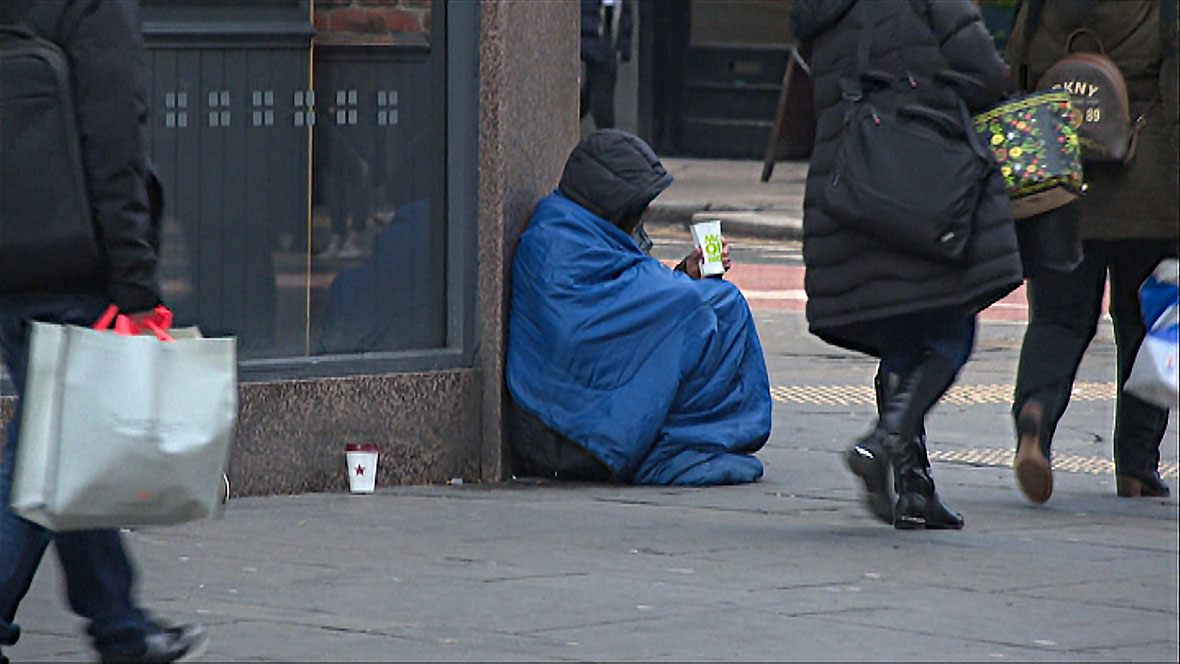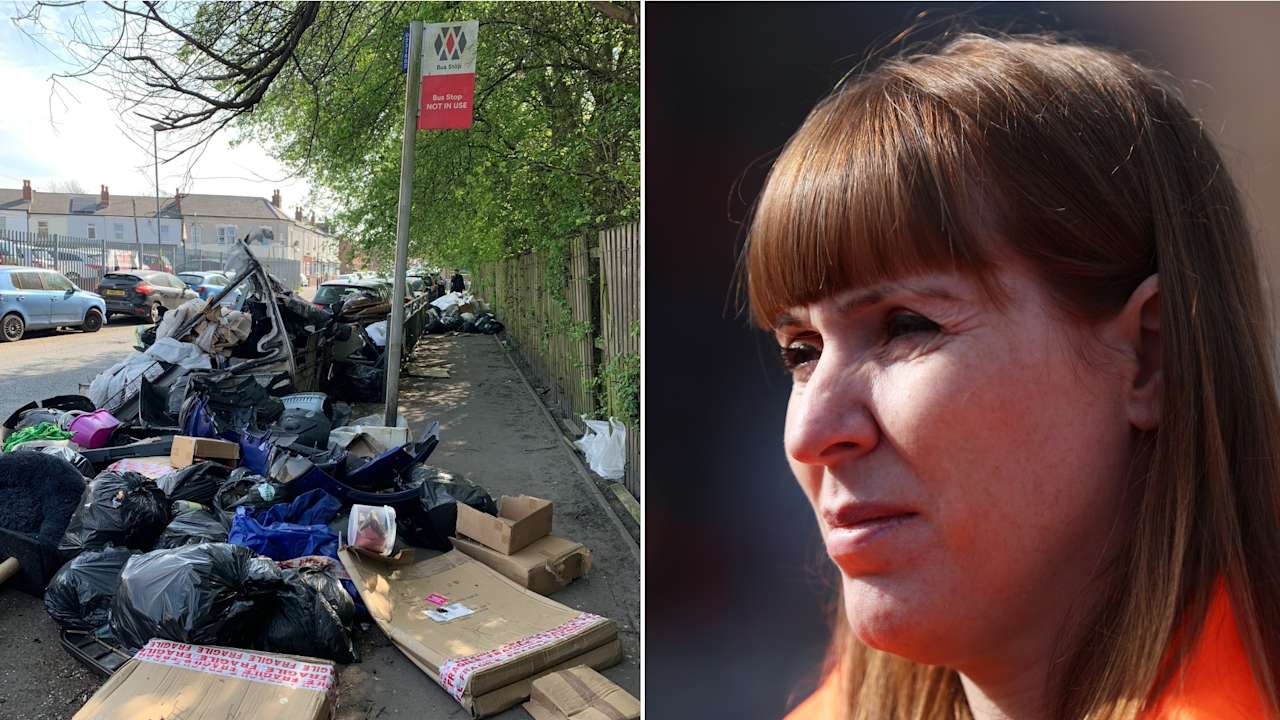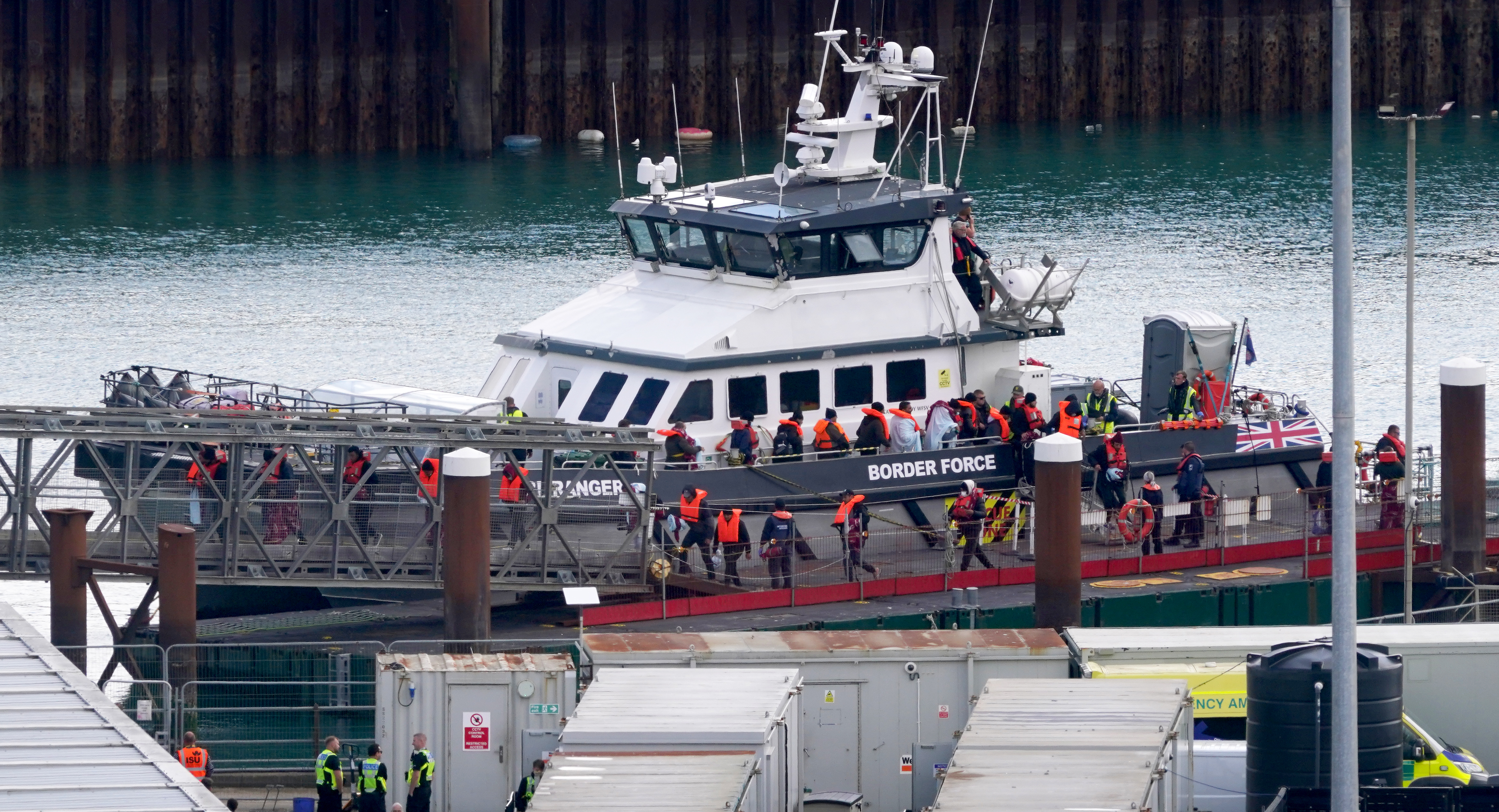Proposed new duties to prevent homelessness could be “transformative”, campaigners have insisted, as they urged ministers to ensure the changes are backed up with adequate funding.
The Scottish Government’s forthcoming Housing Bill is to include a duty on public bodies to work to prevent homelessness.
But charities working in the sector have stressed clarity is needed about the proposals, along with “adequate resourcing”.
Both Crisis and the Cyrenians have been involved in the Homelessness Prevention Task and Finish Group which published a new report.
The report stressed that the success of the new duty is “not guaranteed” and added there should be “long-term resourced plans and full logistical and financial support for public bodies”.
It was published as Scottish Government figures showed a 10% increase in the number of households classed as homeless, with this rising to 32,242 in 2022-23.
A record 9,595 children were in temporary accommodation last year, statistics showed.
Scotland’s new homelessness prevention duties, “if implemented successfully, can transform the way we support people experiencing housing crisis, and in turn can transform lives”, the report stressed.
It stated: “As we stand on the threshold of the introduction of the Housing Bill to the Scottish Parliament, it is important to be clear about the potentially transformative impact that the homelessness prevention duties could enable.”
The report set out the “key elements” needed to maximise the success of new duties, with these including “cross-sector culture change and leadership”.
In addition it called on Scottish ministers to “provide clarity as soon as possible regarding which public bodies the new duties will apply to”, saying this would allow organisations to engage with the legislation at the draft stage.
Meanwhile, on the county’s housing stock, it stressed the need to “build, acquire, update and adapt a better range of housing that meets the needs of people across our communities”.
Here the report was clear that “an agenda to prevent homelessness must have the housing stock to enable it to work”.
Crisis chief executive Matt Downie, said: “We encounter people whose homelessness could have been prevented every day, and we have done for decades.
“People who, with a bit of help earlier, could have avoided the trauma, injustice and indignity of homelessness altogether.
“The measures proposed by the Scottish Government to prevent homelessness could be transformative. But, to work properly, they need to be backed up with adequate resourcing and the support local authorities and public services so desperately need.”
Mr Downie added: “These proposals could represent the beginning of the end of homelessness in Scotland. We know how to do it, we just need to push on and make sure those doing the work have the support they need.”
Cyrenians chief executive Ewan Aitken said: “We could change lives across the country if we commit ourselves now to preparing public bodies for these new prevention duties.
 STV News
STV News“Every day in Scotland people leave our hospitals, our prisons, our courts and our care system with nowhere to go.
“If we work together across third, business and public sectors and give our public sector staff the resources, the training and the legal clarity on what their responsibilities are, we could have a system that creates safe pathways and secures homes.”
The Scottish Government said it would respond to the report’s recommendations “in due course”.
But housing minister Paul McLennan stressed that it “supports our approach of working collectively to ensure no one need become homeless”.
He stated: “We are clear the best way to end homelessness is to stop it from happening in the first place, and our long-term strategy for tackling homelessness is strongly supported.
“Scotland already has the strongest rights for homeless households in the UK and we are taking steps to further strengthen our laws to support early intervention and prevention, building on some of the excellent work already undertaken.”
A ministerial oversight group on homelessness is to meet for the first time next month, with Mr McLennan saying this would ensure that departments including health, education and justice are “working together to drive the culture change we need to in order to prevent households having to face the disruption and trauma of homelessness”.
The minister continued: “Nowhere in the UK has escaped the pressures of the cost of living crisis but we continue to support local authorities to prevent homelessness with £30.5 million on top of funds through the local government settlement.
“Separately we are also providing a total of £100 million from our multi-year Ending Homelessness Together fund.
“We are also investing heavily to increase housing supply and the number of affordable homes completed in the latest year to end March 2023 is the highest annual figure in more than two decades.”
Follow STV News on WhatsApp
Scan the QR code on your mobile device for all the latest news from around the country


 iStock
iStock




















